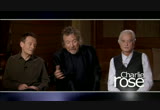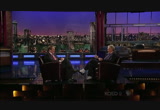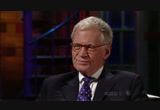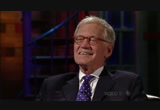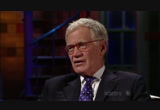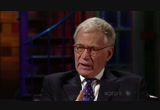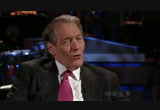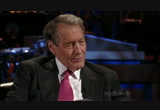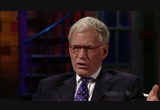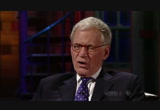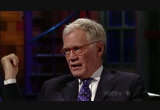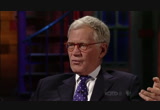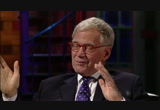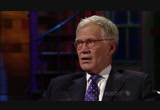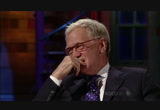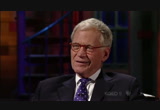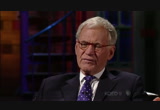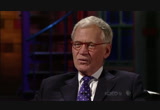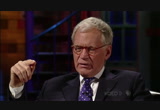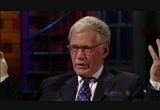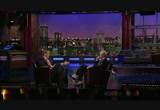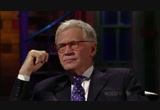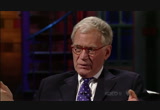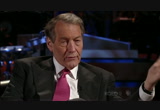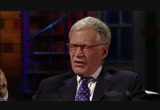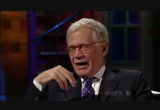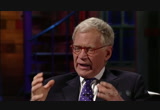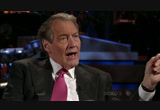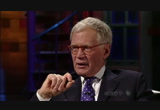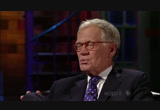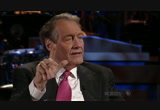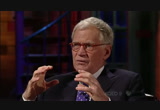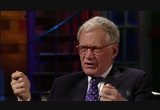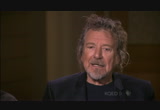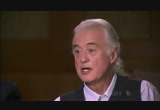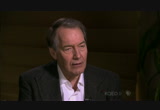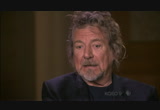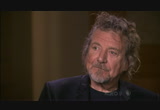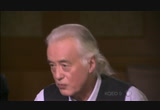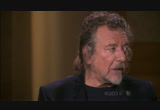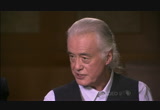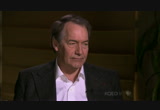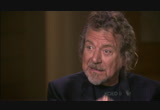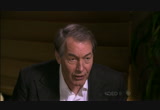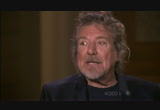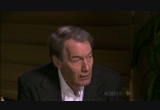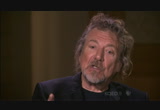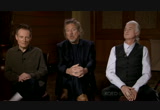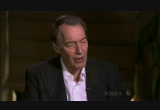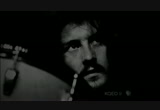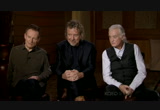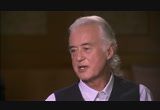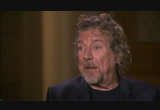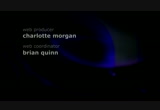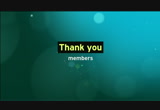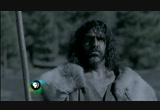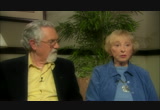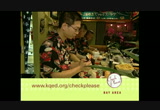tv Charlie Rose PBS January 7, 2013 12:00pm-1:00pm PST
12:00 pm
company. we are, for me, i'm absolutely, i'm so pleased that everything is where it's supposed to be in the great wheel that turns here in america. a long way to go. but we are entertainers. if we can entertain each other. we company entertain somebody else. >> rose: funding for charlie rose was provided by the following:. >> a polar bear cub is born with no sense of sight
12:01 pm
12:02 pm
>> hmmmm. >> well, i-- yes, it is a big deal. when i first found out about it i thought something was wrong. so i called people i knew who might be able to tell me how things like this happen. because i was very suspicious, feeling completely unworthy. and we tracked down the process by which a person is selected and considered. and so it took me about two weeks to become satisfied that there was and excuse the word legitimacy to this. i still don't feel that way. but at least i know to my great satisfaction that money didn't change hands. my family is thrilled and delighted. and based on my family's enthusiasm, then i can live with this. >> this includes harry. >> harry doesn't know, doesn't care. the idea of going to the white house, i think, will
12:03 pm
really get his attention. but the rest of the family couldn't be more thrilled. so to me that's reason enough. and couldn't be happier and more grateful to the folks who made this mistake. >> it's a really classy group to be associated with. as you mentioned, johnny carson. you were there for that. >> i was there for that night. and i remember i was to follow ted koppel and it was the first of pain times i had to follow ted koppel. and that's to the where you want to be. because he is very, very funny. and as i said that night, maybe a little too funny for a newsman. this was, gosh, 90-- i don't know, way, way back, a long time ago, '94, something like that. >> rose: one of your guests tonight is one of the funniest newsmen we've ever seen. >> well, brian williams, he's pretty fasel. pleasant fellow. very, very knowledgeable, very, very smart.
12:04 pm
and maybe funnier than everything else he is. and-- . >> rose: meaning that he's funnier than he is a good newsman, he's funnier than anything else he does. >> yes. he probably is what they're looking for, for this job or for the comparable job at fbc or any other job. this is-- this guy is a real throwback. i mean many guys are smart and knowledgeable. yourself included. and you're funny enough. but brian williams, i mean this guy is a triple threat. >> yeah. might he want to do something like that? >> i would hope so. i think he's honestly between you and me wasting his time doing the news. that's a deadend job. >> rose: but there's also this. you get this award and there have been others, but for 30 plus years of doing something you love. >> right. >> rose: that's a nice way to go.
12:05 pm
>> well, it is. and i think how fortunate people are, when you know what you want to do and then you find a way to do it and then you continue to do it for as long as you want. that's great good luck. that's great good luck. because i think and i know a lot of people never really quite sure what they want to do. not really quite sure what path they want to follow. and maybe they make themselves happy with whatever path they end up on. but there was no question in my mind from the time i was 17 what i wanted to do. and i have pretty much done it every day of my life. everything i've ever wanted to do. i was on television when i was in 1968. so i have been doing this a long time. and it's still just fun. i mean all it is just showing off. you bring in a bunch of people who really don't want to be here. and watch me, i'm going to show off. >> rose: and talk to some of
12:06 pm
your friends and hope they have been entertained. >> well, we've been really lucky with people would come to see us. >> rose: there's a story that you really didn't know what you wanted to do, didn't particularly like college that much. and then you took a public speaking course. >> uh-huh. >> rose: and you said -- >> that was it. >> rose: this is it. >> it was in, actually in high school, my sophomore year in high school. and my peer group was following an academic course of study. i was having trouble with the academic course of study. and as they continued successfully on the academic course, and i was taking more and more shop classes, i was being pulled away from my peer group. and i started to panic because these are the guys that i liked and spent time with and emulated. and they were going away, while i was learning how to solder. nothing wrong with that. but it was, i could just see that i was going to be in some trouble. and then i took this speech class in high school, my
12:07 pm
sophomore year. and the first project, the first day of school was we had to give up and give an extemp rannuous five minute talk about ourselvesment and i did that, and everything else changed. and i said well jeez, this is really what i want to do. now the trick will be to find out if you can make money with five minute extemp reasonuous speeches. >> what was it about that that made you say wow. >> i don't know. it was-- it-- well, i do know. nothing in my life ever went well. this went surprisingly well. and couldn't have been easier. so the combination of getting rewarded for something that's easy to do, i mean there you go. you're right writing your own paycheck, aren't you? >> rose: at some point you get nay pickup and drive out to los angeles. >> right. >> rose: you look around, you see the comedy store. and three years later you're sitting next to johnny carson. >> yeah, that was cool. that was really cool.
12:08 pm
it was-- 1975. and it is like the-- we're heading west. as i said before t was so easy. because if you owned a television set and you watched the tonight show, once a week, twice a week you would see comics. and before or after each comic johnny would say you can see so-and-so and so-and-so telecom dee store. and you would have to be stupid to overlook that connection. so i told everybody that i wanted to be a writer. but i didn't really want to be a writer. >> rose: because you didn't want to admit that you wanted to -- >> that's right. >> rose: in front of the camera. >> i didn't want to make too big a fool of myself. and the first week we got out there, i went to the comedy store. >> rose: and then how was that first performance? >> scary, really scary. but the woman, missy shore to whom i owe a great debt an a lot of other men and women owe a great debt, was kind enough to ask me if i wanted to come back and then
12:09 pm
she had me emceeing. which was perfect. because i had no material. and you could just-- . >> rose: introduce the other act. >> and make fun of drunks in the audience. >> but you got to hang out with people who were doing what you wanted to do. >> yeah, it was tremendous it was so great, because every night you would get to try out your material but the best part was then seeing people that became your friends, and watching them work. and it was, my good friend george miller of d, my friend john dreesen and robin williams and jay leno, and johnny dark and on and on and on. guise, men and women that maybe you've heard of, some that you haven't. but they were all really funny. funnier than i ever was. and to go to work and knowing you were going to spend the night laughing. and then the camaraderie was always entertaining too. >> carson meant what to you? >> well, for a person in that situation he meant
12:10 pm
everything. i mean it was-- it wasn't like it is now. the door to being a stand-up comedy or television success was the tonight show, the curtains through which you passed to be on the tonight show. and he meant everything to me. he meant everything to everybody else who was out there doing stand-up. the time when you could be on that show, do well on the tonight show, the next day you would get calls about having your own show. you would get calls about oddicianing, william morris wanted you. and they're going to put you on a show. and then there is a movie and a this and in those days people would go out on tour for likes six, eight months and they would have an opening act. so it was really the employment placement office. and more often than not if johnny liked you, you were going to trend upward on a pretty steep -- >> the most powerful influence on your life, you think. >> for that reason and second because he was the
12:11 pm
gold standard. >> yes, the most powerful influence, certainly professionally. and i used to think as a kid watching him, in the midwest and in indianapolis, and you know, my dad would be there in in his underwear. and i would be there in my pajamas. and we would be watching johnny carson. and johnny was like oh, jeez, you know, i love my dad but johnny is a little hipper than my dad. and so johnny kind of became a guy, you know this is what you do if you are a guy. >> rose: when is the last time you saw him alive. >> it was years ago, he and his wife were in town on their boat. and they invited me and my wife to have dinner with them. and we sailed up and down the hudson. we went under the george washington bridge. turned around and came up, back past the lower, looked right at the statue of lib the and up the east river, turned around and came back. and it was all at sunset.
12:12 pm
and it was pga call. >> rose: he walked away from it. could you walk away from it? >> yeah, yeah. >> rose: you think so. >> yeah, i think he would always-- i know johnny missed it. because like six months after he retired, somebody had a big party for him in new york. and he had won some sort of an award. and people got up and did material and i had to get up and do material. and that damn ted koppel was there. and then johnny got up. and johnny who had to the been on television for six month its or a year, bang, bang, bang, bang, bang. right down, like he had had not missed a beat. stuff out of the newspaper, bang, bang, bang, bang. and at some point during that he says-- he said i'm so glad that is going well. he said i sure do police it. so i know he missed it. and i know i would miss it. but i would find other things to do. >> rose: but all the dramatic events in your life, one is you go to the hospital and they tell you
12:13 pm
you are going to be in the operating room. >> uh-huh. >> rose: you go in, the same doctor i had. >> wayne isim and those guys. >> rose: those guys and they fixed you up. >> uh-huh. >> rose: did that change you? >> well, going into that i was a really, like a black belt hypochondriac. i mean really. i mean self-diagnosis. self-medication. i had two different doctors ask me to stop coming to their office. they said we can't find anything wrong. stop coming here. >> rose: but you were convinced something was wrong. >> yeah. so then when you have quintuple bypass surgery, that, that really makes your hypocon drya look silly. so that all changed. and i guess people say well, what did you learn. and i had to think long and hard about it but what i
12:14 pm
learned then was you really have to trust people. because these guys are so good. and you know, you don't know that before you are in their hands. i -- know that before i was in their hands. but they're so good. and to this day, we have quite a few friends from that episode. so it was a life changing moment. >> rose: nice tribute to them. you brought them all on stage. >> oh, yeah, well, they were keen. and we still-- donna riley. >> rose: wayne's right hand person. >> oh my god, more than wayne's right hand, wayne's left hand, wayne's brains, everything. she's tremendous. >> rose: when you go through that, does it change your attitude about work? does it change your attitude about mortality? does it change -- >> it didn't change my attitude about portality but it did change my attitude about, without. because from the minute they pulled the tube out, the infew baiter, whatever they call it. >> rose: yeah, i remember that. >> i thought jeez, i wonder if i can still work again. so it-- it-- in a movie, it
12:15 pm
would be where the prize fighter who gets knocked down, it would be the montage where he then tries to get back in shape to get another shot at the title. so i was worried that i wouldn't be able to work again. so it kind of relit the fuse of well, let me see if i can do this. and that's, you know, that's why you leave indianapolis in a pickup truck because you want to see if you can do it. so now, jeez, i want to see if i can still do this. >> rose: and you did. but there are stories that you became mellow, more charming. (laughter) >> rose: that you weren't quite, you know, as you had been. >> i mean a guy whose life, entire life was this show. >> right. >> rose: because it had defined, what you loved doing. you wanted to do it better. and you didn't know what
12:16 pm
there would be if it wasn't there. >> well, irrespective of what i just said, one of the things of regret i have, i don't know if it could have been any other way. but a regret i have was not being so single minded about this show. and i think what it is, in my case, the two great motivators in my life, and i hate it when people start talking about two great motivators in my life. one is the guilt. really haunted by guilting actual guilt made up guilt, you know. and the other would be the fear of failure. because if i don't succeed, me loading the pickup truck in indianapolis in 1975 looks pretty silly. >> rose: yeah, so success defined that as the right thing to do. >> yeah. but i wish i had-- i think it came at a price. i mean the heart surgery being one of them. but i wish i hadn't been so gosh darn single minded.
12:17 pm
because it-- when you your focus is that tight, you miss a lot of what is going on around you. >> rose: might you have had a child before. >> yeah, yeah, i think so. i just thought when the topic would come up, i can't-- i can't do both. i can't try to have a successful television show and be a father. and i was wrong about that. because as difficult as being a father is, it's entirely complementary with everything else in your life. >> rose: how is that? >> well, you just-- you know, it's like you get your prescription updated. oh, you can see things that you never saw before. >> rose: and you think of things other than yourself. >> you think of things other than yourself. and you recognize, and all of this is, anybody that has had kids goes through the same thing. but you know, i wish i had like five or six kids. >> rose: do you really. >> well, no. i just say that because i think people will like to hear it. >> rose: no, you do, you
12:18 pm
like it. to everything you ever said about this, you love -- >> i have a bill little boy now, i wish i had a little girl. >> rose: never too late s it? >> look at me. you got a better shot than i do. >> rose: no, i don't think so. but it changed your life. i mean you have said a number of times. >> yeah. >> rose: this kid made you see everything differently. >> makes you see everything different. but what i wasn't prepared for was the infinite anxiety that it triggers. you worry about everything. i don't care. just throw out a topic, go through the alphabet, identify a word that begins with any letter that could be trouble, you worry about it. >> rose: that it could happen to your son. >> happen to your son, could happen to you, you could do something. it's endless. it's the old-- you know, don't run with the screwdriver and now i see my kid run i say oh, god, he's running with a screwdriver. how did that happen? >> rose: are you best
12:19 pm
friends. >> ply son and i, no, no. he-- no. and people say well, you don't want to be your best friend, you want to be his father. and i don't know what kind of father i am. >> rose: you don't know. >> i don't know. does anybody know? >> rose: well, i don't know. >> see if i had more than one kid than you would know. because you would learn so much from the first experience that you could apply it to, you could edit your miss fakes and refine it for your subsequent quides. -- kids. but he takes full force of the good and the the bad. >> rose: there was a moment in which you had. you worried about things and you had a certain battle with depression too. >> yeah, yeah. >> rose: and you found out medication can go a long way. >> yes. and always quite skeptical about it. and my friend and doctor lou aroni, 20 years ago, he said you should take something for this. and i said no, because i thought it would make me loopy or make me hall use nature or make me drowsy. and he said i'm telling you,
12:20 pm
just try it, 10 milligrams. so i went through, i had the shingles really bad. >> rose: oh boy. >> and part of the con kontion of drugs they give to you fight that pain, are pretty serious. and i just got tired of taking them. so i stopped taking them. >> rose: cold turkey. >> yeah. and part of that created in me this nervous anxiety. and then i was really screwed. so that is when i said to lou, okay, okay, i will try anything just to get rid of this depression. because it was, it's different than oh, i don't feel good today. it's different than feeling sad. it's different than feeling blue. it's really like a friend of mine says, it's the world with 20/20 vision. you really see yourself in trouble. so i took it, 10 milligrams. and one of those selected serotonin inhibitiers.
12:21 pm
and oh my gosh, within about 90 days, i realized oh, this is how other people who i admire must feel. because i would-- whenever i would get up set i wanted to make sure the world was up set with me. and the smart people didn't fall for that. and when i started that medication i realized oh, you don't have to be that way. there's another way to live. and i think for me it's the right way. i don't know what causes it. some people get it in bigger amounts. some people get it in lesser amounts. i done know whether it's trauma or the luck of the draw but it certainly helped me. >> rose: we are sitting here in the ed sullivan theatre. cbs came to you and howard stringer after they decided to go with jay for the tonight show. can you look at that now and say that was for the best.
12:22 pm
>> yes, absolutely for the best. when i look at that now, i think it also reminded me of some of the worst behavior of my life, my own behavior. and i wish things were like they are now, i wish they were like they are now then. >> rose: what was the worst behavior. >> well, there was a lot of pressure, a lot of self-impressed-- imposed pressure. they came in and remodeled this place. which i have grown to love dearly. huge amounts of money. we had to fly around the country, talk to skeptical affiliates. and i didn't handle it well. and i wish i were able to handle if the way i handle things now. >> rose: but it was insecurity, anger. >> insecurity, anger, fear of failure. everything. >> all that's gone now. >> i would say it's all gone but it's in a manageable dose. i just feel like this is the
12:23 pm
way humans really ought to be. i mean i still lose my temper. and you're this close, charlie, i'm telling you, you are this close, you know what i mean. i will mop the floor with you. >> rose: that will make this one of the more interesting interviews i've ever done righthere. so what is it, you think, that you brought? you created this show which followed a previous show where you had sort of, in the eyes of many, redefined comediment because it couldn't be what john was doing. >> right. >> rose: it had to be something else. >> yeah. >> rose: you didn't want to have his guests on your show. >> well, we couldn't. we were told, you can't do this, you can't have the same guests. you can't have an orchestra and on and on and on. but i had very little to do with that. the people that, on the staff, they were resourceful enough and figured out ways. you know they kind of said good, that's not the show we want to do anyway. and i always felt like i was lucky enough to do somebody
12:24 pm
else's show. they built the show and i did it. and you know, we started out, the producer and the head writer and, was meryl-- we kind of did her show. and then after that we did steve o'donnell's show, then rob burnette was our head writer for a long time and we did his show. i liked the fact that these people were all smarter and funnier than i was. because i don't know what i am doing. >> is this self-deprecation or you believe that. >> i think it's true. >> they were doing their show rather than your show. >> yeah, yeah, and it's a great relief because you then learn from them while they're doing it. and you can compliment what they're doing or personalize it to make yourself fit in. >> here's an interesting thing. this whole notion of the kennedy honors is recognizing something about your contribution. what johnny carson meant to you, you mean to jimmy kimmel. and others.
12:25 pm
and do you have any sense of that? i mean dow appreciate that. >> jimmy kimmel is a case, he's been very nice to me. he's a nice kid and been very gracious to me. and to the point where it's made me self-conscious. and i start thinking about what this is. and the comparison that he had made that you are to me what carson was to you. and the difference is all i really have is tenure-- tenure. carson was, head and shoulders beyond anybody doing it now, anybody who will ever do it. you may see flashes of what he could do. but if you look at his show, it was always effortless. even shows that were awful, you just wanted to see what johnny was doing. i don't have that. like i said, all i have is time, i put in my time. >> rose: i think it's more than that, dave. >> i don't know. >> rose: i'm not one to argue about this because i don't understand comedy. but at the same time, you know, it's self-evident that
12:26 pm
after you people looked at these shows differently. and therefore fallon and kimmel. >> but like i said, i believe that may be true. >> rose: more than tenure, though, there was something about the eck centricity or whatever it was. >> i think it was the vision of the people i had around me more than me. i mean we all knew that the charge was to be a different show. and in the beginning, i will admit that i thought i had all the answers for television. and i, you had that attitude. >> rose: watch out world, i'm coming. >> if you could wait just a little longer we'll take care of television. and then. >> rose: we'll do it. we know the answer. we have the secret. >> pretty soon you realize you don't know the answer. >> rose: it is not there every knight. >> so i don't know if i can rightly, you know, i was in the room, i'll give you that. i was in the room. >> rose: and how have you changed in terms of your performance? >> well, certainly less
12:27 pm
ambitious. >> rose: really. >> i'm 65. so i'm not going to do thins i did when i was 35. >> rose: not willing to take more risk or -- >> yeah, that's right, that's right. >> rose: but why is that? why should you lose risk at 65. >> i think when are you that age the metabolism dictate was is going on. like if you said to me we're going to have cirque du soleil on and they want you to dress up like a zebra. >> rose: that wouldn't happen. >> no, it wouldn't happen and run down broadway or you can talk to brian williams. i would find a conversation with brian williams more satisfying. and i think that's just being 65. i can see a kid who is looking to make a mark in television and oh, i got to do so-and-so and i got to do so-and-so. but i'm not that any more. >> rose: what do the guests that you like share. brian whichials is one, tom brokaw is another, regis is
12:28 pm
another tom hanks is another. steve martin is another. >> bill murray yeah. >> rose: was the first, the first guy. >> that's right. these are people that are, easy to admire. and really smart, really smart. and that's the other thing. i have been around all my life, really smart people. and it's a double-edged sword because it's great but it also makes you realize oh, jeez, i wish i was just 10%, maybe 15 more points on the iq test. but that's how you learn stuff, you know. and also to be able to make some of these people laugh is greatly satisfying. >> rose: in a previous conversation with me you said, you cannot understand unless you sit in that chair how you feel the necessity of getting a blaf every minute. >> that's right. that's interesting. i remember when we said that. see, i don't feel that way any more. i always felt like the show
12:29 pm
i was the central nervous system to the show. we have while my name is in the title of the show, i don't feel that need now. i feel like the presence of the guests can handle that just fine. somebody else can get a laugh, or we can go without a laugh. now i would prefer a laugh comes from someplace but i don't feel that ultimately that weight is on my shoulders any more. >> if what makes you laugh different today? >> well, that's a good question. no. i think what makes me laugh today is the same thing that has always made me laugh. something silly really silly but yet still within the range of plaus ability. something that yeah, that maybe could happen. we don't think so but maybe it could happen but it's so very silly. and that's all it takes. >> you love when somebody pushes back though.
12:30 pm
smart people come in here and they push back. >> that's right. that's pretty good. >> yeah. but it's also the fact if they come prepared. i mean you like, i mean i flew back across the country with tom hanks one day. and he was going to be on the show. he was thinking about appearing with you for five minutes. >> uh-huh. >> rose: preoccupied about it. because he wanted it to be perfect. >> right. well, he is a tremendous guy. and for him to take my show that seriously, that's high praise. and he mentioned it when he was here last week. he said well, you know, the ten most anxiety, sweaty filled minutes of my life are over. and i know he takes it seriously. he's so charming as a guy. he doesn't need to prepare anything, you know. but i, i love that because it shows me that one of the really great thinks enough of my show to feel that way
12:31 pm
about it. >> steve martin feels the same way. >> steve martin, i mean here's a guy, you know, genius, just in many, multiple facetted genius. >> rose: anything you wanted to do that you haven't done? >> no. >> rose: you failed at certain things. >> yup, no, done everything. honestly. it's not like, i mean when this goes away, i will miss it but i won't have those moments where i think oh-- . >> rose: if i had only. >> dang, we never got to do this. >> rose: do you come, when you-- when you come to the show every day now, i mean are you less, i mean are you less anxious to do it not only, and you don't want to go to meetings about it. is there risk at some point, you will just mail it in. will you know then that this is the time. >> i've been mailing it in for years, charlie. i can't go to meetings. i finally realized they were producing great anxiety. i can't pay attention. i think i have one of those
12:32 pm
disorders. i hate going to meetings. >> rose: it is a disorder. >> and then when people start saying the same thing over again, i think and say well, you know, geez we discovered that. so i don't go to the meetings and i think it is for the better. >> you're fresher and better. >> some days i get very excited when i see a certain guest is going to be on. and then i will really look forward to that. so that's all good. the other night when because of hurricane sandy we couldn't-- we couldn't ask people to come in here as audiences, i kind of got excited about that. >> rose: that's great. you got excited about the fact. and you went out and said there's no audience. >> i wanted to see what that was like. and then we did it two nights. that was good. to do it one night would have been no good because then the second night i knew what to expect. and then okay, so we did that. so i-- i look forward to that. i mean i'm sorry for the circumstances, obviously.
12:33 pm
>> but it was a new challenge. >> uh-huh. >> there is the sense that for a while you were a loner. >> a loner. >> a drifter. a man wanted in several states. >> rose: that's right. a man who would get in his porsche and drive up there at speeds beyond light. >> yeah. >> rose: but also -- >> a-- syke path. multiple personalities. >> rose: i man who had obsessions of owning lat lots of land in montana and snt barts. >> collected jars of his own urine. >> rose: i thank you, it's a pleasure. >> well, thank you. honestly, i'm so grateful. and i just want to say, in the beginning when we came here, i was really difficult for the network. i regret that behavior. and over the years, people like yourself and the management have been nothing but kind to me. and i appreciate that. >> rose: because we love you.
12:34 pm
>> oh. congratulations. >> thank you, sir. >> rose: this is a high honor. kennedy honorees, how does that sound? >> fantastic. >> rose: the president and the first lady will be there. half of washington officials will be there. and when you think about it, so many of the great musicians, it is a really special honor. >> yeah, it is-- you know, we're british too so-- . >> rose: i know, although mccartney has been. >> yeah. i think these years that fly by, you know, we got together so many years ago that, and for zest and adrenaline and energy. we had the years that we had together. and then so many years later these people sort of sum it all up and say, okay, we remember them which is
12:35 pm
magnificent, really. >> when did the critics take notice? >> well, they didn't like us at all. >> no. >> i don't think they understood what we were doing. >> what didn't they understand? >> i think they were revealing albums, relative to bands that had singles out as well. and said that they would make that identifiable, if you like. each single will be identifiable to the sound of a band, the character of it. we didn't do that. so when we were pushing and pushing, trying to get right over the horizon. so i think they would have trouble because they wouldn't have a point of reference that they could take from either the first album or the second album. and certainly by the time they tried to review the third album in a very short time i might add as well because they were up against a deadline. >> and also there is a ref recommendation thing in what
12:36 pm
kids play in blues, you had great people here with mike bloomfield, alvin bishop, canned heat. people who were actually bringing back skip james and-- out of obscurity. and we came along and we mutilated the blues and twisted it upside down. and i guess it was considered to be bad taste too, you know. i think there was a feeling that we were slightly precocious and not being, sticking to the-- trying to emulate what it was in the first place. and the worst thing in the world with music is to keep it going identical forever and ever. >> was that a driving thing for you guys, let's turn it all upside down. let's do what we hear and turn it upside down. >> i do think we turned it up sight-- upside down. >> did you, because the way at cowes particular music was being presented, was a way that hadn't been presented before. and so it wasn't just, it wasn't, so even though there is a common denominator in this, with the blues, we
12:37 pm
were presenting, we were presenting music that had influences from all over the place, really. but it was a way that it was crafted together. >> people, go ahead. as a singer you can't actually get anywhere near the initial delivery of those great recordings which weren't part of the plan. they weren't somebody looking after their career interests. they were people expressing themselves. and so for me to come along and try and sing, you know, like robert johnson or b.b. king or buddy guy. first time i met the blues, you know, how could you hope to be a guy from the middle of england and get anywhere near that as a presentation. it was a pointless exercise. just wouldn't be part of the agenda at all. so it is just about getting on. and i was 20, john was 22, jimmy was 23 or whatever it was. so you didn't have this kind of need to be purist or whatever. >> was there a leader? >> among pu?
12:38 pm
>> was there first among equal? >> well, jimmy was in charge. with the crafting initially. and with the understanding. and all that and we and i really couldn't believe it he got the extra money for driving the van. and i got some penicillin. we were feeling pretty good about all that stuff, you know, and going back and telling all those people without kept crossing the road to avoid us, that you know, something was going on. as time went on we matured a little bit from the middle of england. and we played a different role as things developed. >> did it keep getting better? >> for a long time, yeah. >> creatively. >> yeah. >> the response. >> we played bigger and bigger venues. which i must admit, i wasn't
12:39 pm
that keen on the really big venues. because i, it lost a lot lot of the subtlety in the band. everything has to be just broad gestures. and while it great that a lot of people can see you, to me that wasn't what the band was about. i don't think we ever managed to supply the demand as we're talking about concert. we always sold out. we were always doing multiples in cities but then we would have to be moving on. that's it. we always had full attendance everywhere. and from the early days. and so the humble days, say 69y when we were really, really establishing from one coast to the other, from the west coast to the east, i mean that was it in a matter of months we were really established. but the people just kept wanting to come to the theatres, you know, more and more and more in drofs. and that never stopped. >> no, the event became the event. and we were trying to play
12:40 pm
with the same sort of interaction in the middle of an event which people come for for different reasons. so it was an event. it was a far out experience. and i understood that because i had my own places to go for events too, you know. but sometimes it did get, the event and the response within the event got in the way with what we were doing, i thought. do you 2340e what i mean? so we couldn't really -- >> the great thing about what happened in 2007 when we played together again was that we were back, even though we were in a reasonable size venue, we were close together, really listening intensely. and intently to the interplay between the four of us with john playing. and that was exactly kind of how we started off, you know. >> long do 2007 at that concert. you wanted to show you still had the right stuff. >> you could do it. >> tell me more about that moment and when you knew
12:41 pm
that, and why it became for everybody there, an extraordinary evening. >> what was it about the muss snec. >> if we were going to do it with the massive reputation that preceded us, that we would have to go out there and get it right. and we would have to work on it. and really come together and be so selective about the willpower to come, you know, to make this-- if we were going to do it at all it had to be the best concert. and we also had an opportunity here to be able to sort of have a retrospect on our own career, to select the various numbers that were going to be in the set. and it was a perfect opportunity to go out there and stand up and be counted. and show why we were who we were. but it needed some work to be done on it. obviously we needed to realize we couldn't take this in any flippant way. we had to add to it. >> and as it was happening,
12:42 pm
could you feel it and sense it? did you know it? >> well, it got more relaxed and more fun, by song number three i think we knew that we weren't going to-- we were on it. i mean the thing is we set a huge bunch of standards for ourselves with every time we cut records. we would trying to investive. we weren't trying to supersede anybody else's gig. we were doing our own stuff. but it was still rather like this wind that is blowing through here. it was certainly something to live up to. >> somebody close the door. >> chuck berry would say do you agree. >> a cool breeze. >> yeah. >> okay. so -- >> living up to that. getting right and not affecting it. >> you knew you had it. this was the magic. >> plus we had jason as well. >> jason come to-- and we would know him as jason, as a kid. john's son. but you know, with one
12:43 pm
rehearsal we all knew he was jason, the man who was really tearing at the bid. he had so much enthusiasm to-- and there was such a will between all of us to really make this,to not say to make it work, it was work, but to make it even better than that. >> and everybody in the world knew it. so why did you not take that zeppelin on tour? >> what you know about led zip lynn is your interviewing us now. you interview lots of people, they are interesting shows. but you have to be creative and imaginative and move on. an i think the great essence of led zeppelin is the creativity and imagination that develop with each project. and a project is a project. it's not just going back and visiting the past. it's moving forward. and i think that we don't, i don't see us being a stadium acker, whatever it is going round and round, making
12:44 pm
everybody feel great playing the hits or whatever they are. i hear that is part of a big picture of what we were once capable of. that's the reason we came to america. we played new songs. and we did what we did. and we took songs that made the audience go wait a minute, i'm not sure about that. do i like that. and three years later they say yeah, i like that. and that whole creative thing is really what musicians for me, live for. >> but if you recapture that, why couldn't it continue and be creative and engaged and -- and even more so. why, you didn't know that it couldn't build from where it was in 2007, even though it had some relationship to the past. a lot. it could be about the future, couldn't it, jimmy? >> did you want to go -- >> wait a minute, wait a minute. it's 2007 that we did it. so with you go one year that passes, two years that pass, three years that pass, four years that pass. we are coming into the fifth
12:45 pm
year. so you know, that's a long while, five years is quite a long while. it's five years, you know, in the whole sort of world of led zeppelin from 1968. we had done a lot. that's a long time to be missing time, you know? >> but it is said that it was you, that you had developed this other interests. and that you did not want to do it. >> no, i wanted to do great creative things. these guys are my buddies. they're my friends. we're soul partners in a big chunk of our creative lives together. and i think that's a wonderful thing to have experienced. and if that can be the kind of melding of just hanging out together long enough to find out if we all know what key we think in, that's great. i mean but it's ever onward. and johnnie busyment jimmy's busy. we're all busy and it's not the be all and end all of everything. it's just what we love and what we may love in the future. >> what would have been
12:46 pm
going forward that was not a tour that would have been good for you guys, good for us, good for music? >> it's difficult to say. i mean is a tour necessarily good for music. >> or good for us. in that way. >> okay so, a tour is good for me. >> yeah. >> i don't know. we all had to be of the same mind to do it. >> rose: and you weren't. >> and i don't think we were. and that would have-- that would have been hard. >> but everybody got along, didn't they? you essentially were, it was the music in the end for you guys. and that kept you together. >> even though you had that car accident in greece and had to take some time off, the interrupted tour. >> yeah, it was weird, yeah. >> even more tragically you lost your son and you just did what any farther has to do is grapple with that loss, and forget anything else. >> there are priorities in
12:47 pm
life beyond become an ebts takener, you know. there are a lot of things that are much more important. and we are very lucky that the gods have given us the gift to be, to do what we do. but we do many other things, you know. and time seems to, i don't know what you think, jim, but i think time gallops now. don't you find that? >> it seems so. >> once upon a time if we can make zeppelin one in 36 hours, you know, 36 hours now seems to be like the blik 6 an eyewitnesses i want to hear you tell me what happened that night. and why something didn't go forward from that night. because what was-- led zeppelin was magical. it was. it is. >> it is. >> well, yes, it is. and it should, these are great moments. this is a great time. we go in there. we're going to see some very, very hardworking, con shencious people who are trying to put this country back on its feet.
12:48 pm
and that's brilliant that we should be in the right company. we are, i mean for me, i'm absolutely, i'm so please that everything is where it's supposed to be in the great wheel that turns here in america, a long way to go. but we are entertainers. if we can entertain each other, we can entertain somebody else. >> and the fact that the four of you had something that you discover that was so special. when something happened, you just had to stop. you couldn't go on. you couldn't go find another singer, you know? it didn't work. you thought about that. >> didn't know the drummer. >> until jason. >> yeah. >> well, yeah. >> you didn't have another guitarist. you had the world's greatest guitars with you. >> you know? >> it's amazing, really, when you think about it. with bono and with jason. i mean it was another reason
12:49 pm
that that gig was so important was that jason had always been on the periphery of everything. goading us about a particular thing the way that it was played in a particular venue on a particular date. on a particular -- >> yeah. >> 25 years ago, when he was in diapers, you know. no, he's if diapers now. and-- so it was only right, and the great thing was that bondso he mom was still around to see, you know. and joan was there, and she was in her lace and tafetta having a great night. and the occasional-- so that was another great fait accompli. >> but when john died it had to be over? >> well, it was crucial t was a four piece band, you know. >> it was a four piece band. that when it toured, each concert had different elements to it from the
12:50 pm
night before, and indeed the night that was going to be in front of it. and so it was constantly changing. we had this, you know, we had this whole, we had built up this whole sort of elevation, really, to how we played. and synchronicity and connection. that to actually once you lost one of those four members, and at the time that we did, there was no way you could bring somebody in and rehearse, rehearse pieces that went from bootlegs or sound tapes or whatever to say well, we did it like this. in 1975, can you do a bit of that along with what we did here in 1977. you know, the whole thing would have been so disconnected. so there would have been impossible to actually be able to play and not see john there. >> it was great what jason did. for that performance, certainly, based on what his father had done before him. he took loads of chances. and he was a star that night, jason. >> yeah.
12:51 pm
>> but he was still built on the foundations of what his father had done. >> what is great about that is you can to you buy the dvd and see what it was like,. >> and feel it. >> on that day. >> and there were great moments of even that movement on being futuristic, between ourselves or with other people that we work with or whatever it is. there were moment. >> that set where we were risking it, these guys were risking it and trying new bits and pieces. and if in a polarized space i guess we had to cut it out of the film or whatever. we didn't even know there was going to be a film. it was like oh, here we go, let's do this. >> did you believe in your brain f in your heart and your bones that we are the best band alive? >> oh, i think within what we were doing. we were pretty insurance lar. there were a lot of bands from england who played stuff. there were a lot of bands everywhere. they are all great. >> you are just being too
12:52 pm
self-deprecating. are you being too something. >> i think everybody is good. that's why they do it. they celebrate together all these different people who were playing. >> but at the same time, all of us would like to have been you. >> see, the elements of led zeppelin is you can hear it. >> not always though. >> no, wait a minute. but when you listen to it, you can hear what each individual person is putting into that, and how two will be bonding with two, and two here, and three and all four and it's just this weave. and that is the thing that musically has had the longevity of it. because it is such a textbook for musicians am but yeah i would say without being con seated here that way, it was the best band. >> we all were working stock the best band. >> another band said that to us anyway,. >> but also, i mean as an individual musician, in that
12:53 pm
band, when i went on stage, i didn't think oh i'm going to show everybody how good i am. i thought i will show everybody how good led zeppelin was. and work towards that. the whole thing was to make, do everything good, everything you could to make that performance really special. and the band sound fantastic. >> i couldn't get over the fact that i was handling out with janice joplin and people like that. they were encouraging me, you know, so many times my voice used to pack up and janice used to bring me tinctures. and, all legal, but like try this orange juice which of course was laced with absolutely everything you could get to wreck your voice. and it was great, this fraternity of lunacy that was like it kind of, that was the payoff for me. was this, the from attorneyity of musicians and stuff you couldn't find in britain no matter what. the festivals we played, we were the best band at what
12:54 pm
we played. but around the corner came john lee hooker with his band and around the corner came pacific gas an electric-- whoop, and-- it was just great time. >> kennedy honors. you stand where a remarkable people have stood. and you well deserve to be there. >> thank you. >> thank you. >> thank you very much. captioning sponsored by rose communications captioned by media access group at wgbh access.wgbh.org
12:59 pm
was produced in high definition. [ ♪music ] >> yes, check, please! people! >> it's all about licking your plate. >> the food is just fabulous. >> i should be in psychoanalysis for the amount of money i spent in restaurants. >> i had a horrible experience. >> i don't even think we were in the same restaurant. >> leslie: and everybody, i'm sure, saved room for those
136 Views
IN COLLECTIONS
KQED (PBS) Television Archive
Television Archive  Television Archive News Search Service
Television Archive News Search Service  The Chin Grimes TV News Archive
The Chin Grimes TV News Archive 
Uploaded by TV Archive on

 Live Music Archive
Live Music Archive Librivox Free Audio
Librivox Free Audio Metropolitan Museum
Metropolitan Museum Cleveland Museum of Art
Cleveland Museum of Art Internet Arcade
Internet Arcade Console Living Room
Console Living Room Books to Borrow
Books to Borrow Open Library
Open Library TV News
TV News Understanding 9/11
Understanding 9/11